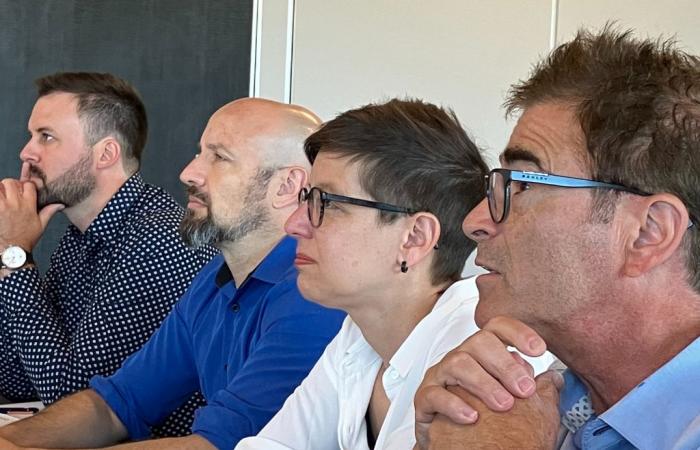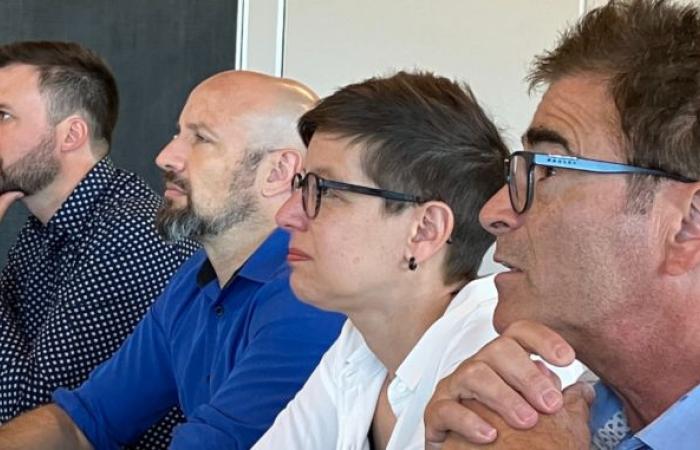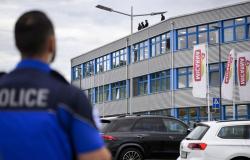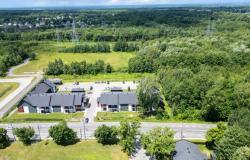Municipal elected members of the Regional Table of Municipal Elected Officials of Bas-Saint-Laurent (TREMBSL) welcome with “deep concern” the data from the regional road trauma surveillance portrait unveiled by the public health department on Thursday.
Remember that Bas-Saint-Laurent once again stood out for the wrong reasons in this road accident report, while an average of 19 people died each year between 2018 and 2022.
Read also: Bas-Saint-Laurent still performs poorly in terms of road safety
This portrait, which places the region among the worst in Quebec in terms of road safety, provokes strong reactions among local elected officials, particularly when considering the demographic data included therein. Indeed, TREMBSL members are concerned about the over-representation of young people aged 16 to 21 in deaths and hospitalizations caused by road trauma. The latter represent 5.5% of the regional population, but account for 10.3% of deaths and 9.2% of hospitalizations.
The prefect of the MRC of La Mitis Bruno Paradis says « very concerned » by these facts. Therefore, he is convinced that a transport offer better adapted to the needs of the different groups that make up the regional population could make a marked difference.
“It’s really worrying. Our young people are, in a way, held hostage by the only mode of transport available to them: the solo car. These data confirm once again that we must offer other transportation options to our populations. To do this, we must launch our regional public transport strategy, led by the Régie de transport du Bas-Saint-Laurent,” he declares. “We are waiting for a meeting with the Prime Minister’s office on this issue,” adds Mr. Paradis.
The public health department also recommends improving regional public transportation to reduce road accidents, specifying that “vehicle dependency” is one of the main causes of the many accidents that have occurred in recent years in Bas-Saint-Laurent. While its regional population has decreased by nearly 2% since the turn of the millennium, there are 33% more cars in its vehicle fleet.
“Road safety in our territories is problematic. Our dependence on cars is one of the main culprits, but the situation is also exacerbated by the size of our territory and its road network and by the high number of kilometres travelled per inhabitant. We have a lot of work to do to change the culture and mobility habits of our populations. The data tells us that the gap is widening between our region and the Quebec average, this is unacceptable! We must reverse this trend and invest massively and as a priority in regional public transit. This is a key to the future for improving the health and safety of our population!” emphasizes the mayor of Trois-Pistoles, Philippe Guilbert.
Public support for the Régie’s guidelines
The mayor of Amqui and vice-president of the Bas-Saint-Laurent transport authority Sylvie Blanchette believes for her part that this portrait also highlights a problematic situation on secondary roads.
“The public health picture alerts us to risk areas that are located outside the major highways and we must pay particular attention to them. It is urgent to act! We must make these roads safer, while accelerating the implementation of a structuring public transportation service throughout the territory. The routes planned by our Public Transportation Board have been designed to support mobility within and between seven of the eight Lower St. Lawrence MRCs, including municipalities that are not located along the major highways,” she explains.
According to the results of a Segma Research survey published two weeks ago, 90% of the population of Bas-Saint-Laurent is in favour of the improvement of public transport services proposed by the Regional Transport Authority.
“Our populations are ready to make this transition if the services offered meet their mobility needs. We are ready to deploy this project as soon as we receive the government’s response to the request for an increase in the fuel tax of $0.02/liter, by the Transport Authority,” adds Sylvie Blanchette.
Six out of ten citizens also support the idea of increasing the fuel tax rather than adding a tax to vehicle registration, according to the same survey.
Read also: Lower Laurentians largely in favor of improving public transport







